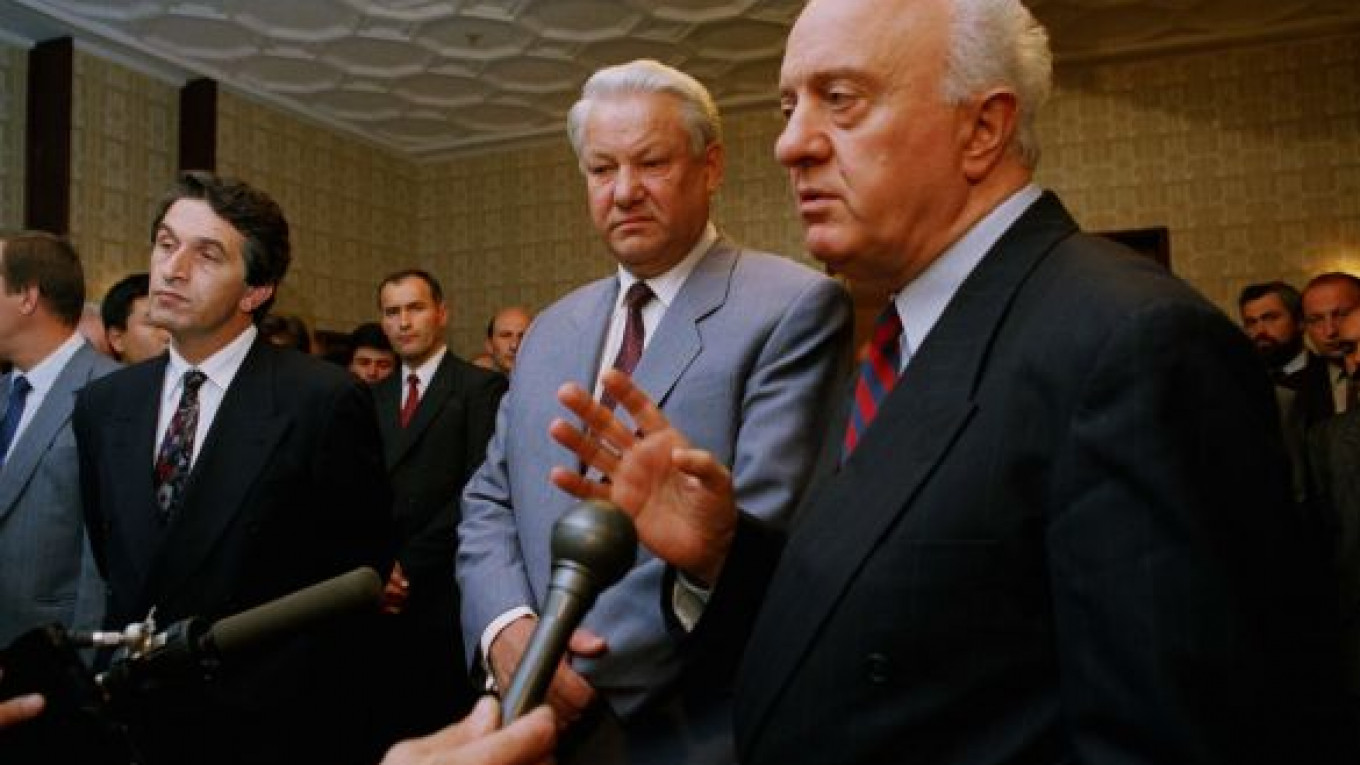SUKHUMI, Georgia — Vladislav Ardzinba, who led the breakaway Georgian province of Abkhazia to de facto independence through a bloody war and ethnic cleansing, died Thursday, his doctor said. He was 64.
Ardzinba died in a Moscow clinic, Ardzinba’s doctor, Anzor Gooz, said without specifying the cause of death.
The Abkhaz president hailed Ardzinba’s role in the nation’s history. “His service to the Abkhaz people was boundless,” Sergei Bagapsh told Interfax.
Russia recognized Abkhazia after the 2008 war with Georgia over another breakaway province, South Ossetia. The United States and European Union consider both provinces an “integral” part of Georgia.
Ardzinba was a controversial figure criticized for his autocratic policies, poor human rights record and determination to secure Abkhaz independence that led to what Georgian leaders called a “genocide.”
In 1989, Ardzinba, a prominent scholar who specialized in ancient Middle Eastern history and mythology, became a lawmaker in Soviet Union’s first democratically elected parliament.
A year later he was elected chairman of Abkhazia, an autonomous province of ethnically diverse Soviet Georgia. Abkhazia lies on the Black Sea coast, its subtropical climate and numerous resorts attracted tens of thousands of Soviet tourists.
The 1991 Soviet collapse and the increasingly nationalist policies of the Georgian government led to disagreements between the central government and its autonomous republics that exploded into a civil war.
In 1992, Ardzinba proclaimed Abkhazia’s independence, saying he was “strong enough” to fight Georgia, and actively recruited mercenaries from neighboring Chechnya. One of the recruits was Shamil Basayev, who later led Chechen separatists and was dubbed Russia’s most-wanted terrorist for his leadership in the mass hostage-takings in Moscow’s Dubrovka theater in 2002 and Beslan School No. 1 in 2004.
By late 1993, the Georgian army left Abkhazia, and Ardzinba’s government orchestrated a massive ethnic cleansing campaign that resulted in the expulsion of some 250,000 ethnic Georgians, more than a half of Abkhazia’s population.
In 1994, Abkhaz parliament elected Ardzinba president, and he secured Abkhazia’s de facto independence by establishing close ties with President Boris Yeltsin. Ardzinba was re-elected in 1999 but kept a low profile because of deteriorating health. He resigned in 2005 and lived between Moscow and Abkhazia.
He is survived by his wife and daughter, who are also Middle Eastern scholars.
A Message from The Moscow Times:
Dear readers,
We are facing unprecedented challenges. Russia's Prosecutor General's Office has designated The Moscow Times as an "undesirable" organization, criminalizing our work and putting our staff at risk of prosecution. This follows our earlier unjust labeling as a "foreign agent."
These actions are direct attempts to silence independent journalism in Russia. The authorities claim our work "discredits the decisions of the Russian leadership." We see things differently: we strive to provide accurate, unbiased reporting on Russia.
We, the journalists of The Moscow Times, refuse to be silenced. But to continue our work, we need your help.
Your support, no matter how small, makes a world of difference. If you can, please support us monthly starting from just $2. It's quick to set up, and every contribution makes a significant impact.
By supporting The Moscow Times, you're defending open, independent journalism in the face of repression. Thank you for standing with us.
Remind me later.


